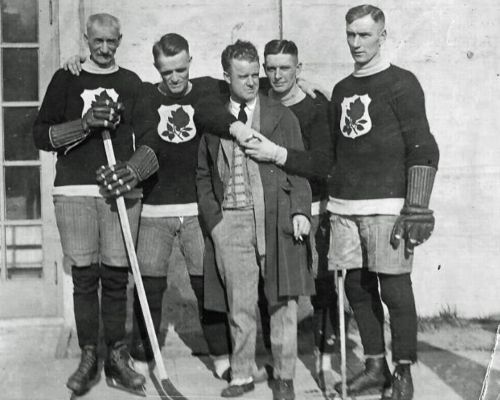Yesterday the NCAA Football Rules Committee proposed a change that would penalize the offense for snapping the ball within the first ten seconds of the play clock, allowing the defense time to substitute on every play.
Leatherheads: Concerned that fancy-pants spread offenses were going to ruin college football, the NCAA rules committee proposed to put restrictor plates on the speed of play.
Teams that violate the new rule would be hit with a "delay of game" penalty, which seems counterintuitive. Moronic even.
The new edict is being made in the interest of "player safety" after loud and persistent protests by hidebound traditional coaches like Nick Saban and Brett Bielema of the SEC, who have long contended that hurry-up, no-huddle offenses propose a danger to the game.
Having trouble stopping Auburn, Texas A&M, and Missouri on the field, they've been lobbying for a rules change to make the college game safer for smashmouth-style football.
It doesn't seem right to try and legislate a strategy out of the game merely because you can't beat it. 320-lb. offensive tackles and 5-star linebackers cause injuries, but Saban isn't proposing to outlaw them. Nor is he proposing to curtail out-of-conference games with Georgia State and Furman, one-sided slugfests that decimate the roster of the undermanned visitors.
The new rule sounds like slowdown teams in college basketball trying to outlaw the fast break, or baseball teams with no speed trying to ban the stolen base.
Using numbers from 2012, Dave Bartoo of the College Football Matrix researched injuries of 15 fast-paced teams (Baylor, Oregon, Oklahoma) versus the ones with ball control, deliberate offenses (Alabama, Michigan, USC) and he concluded the fast-paced teams suffered significantly lower rates of injury, but his study didn't test the injury rates of their opponents, which is closer to the intent of the new proposed rule.
Still, if the change goes through, the new rule seems anti-competitive and detrimental to the health of the game, in that it singles out one style of offense and discourages speed, explosiveness and innovation. The spread era has made college football more entertaining and exciting. Scoring is up everywhere, including the SEC.
The hurry-up spread has been a great equalizer that's allowed teams like Oregon to employ fast, speedy players like LaMichael James and De'Anthony Thomas, befuddle the big guys with misdirection and a furious pace.
The chairman of the Rules Committee is Air Force Coach Troy Calhoun, a Mountain West school that still runs the Wishbone.
What's the story, Troy? In a prepared statement he said, "As the average number of plays per game has increased, this issue has been discussed with greater frequency by the committee in recent years, and we felt like it was time to act in the interests of protecting our student-athletes."
That makes sense, if protecting student-athletes means keeping fat, slow guys from getting tired having to chase Brett Hundley and Marcus Mariota.
A slowdown rule seems like a step backward in the evolution of the game.
If Saban and his cohorts had been around in the 1920s, they would have clamored to outlaw the forward pass and instituted rules to preserve the flying wedge.
Add The Sports Daily to your Google News Feed!
